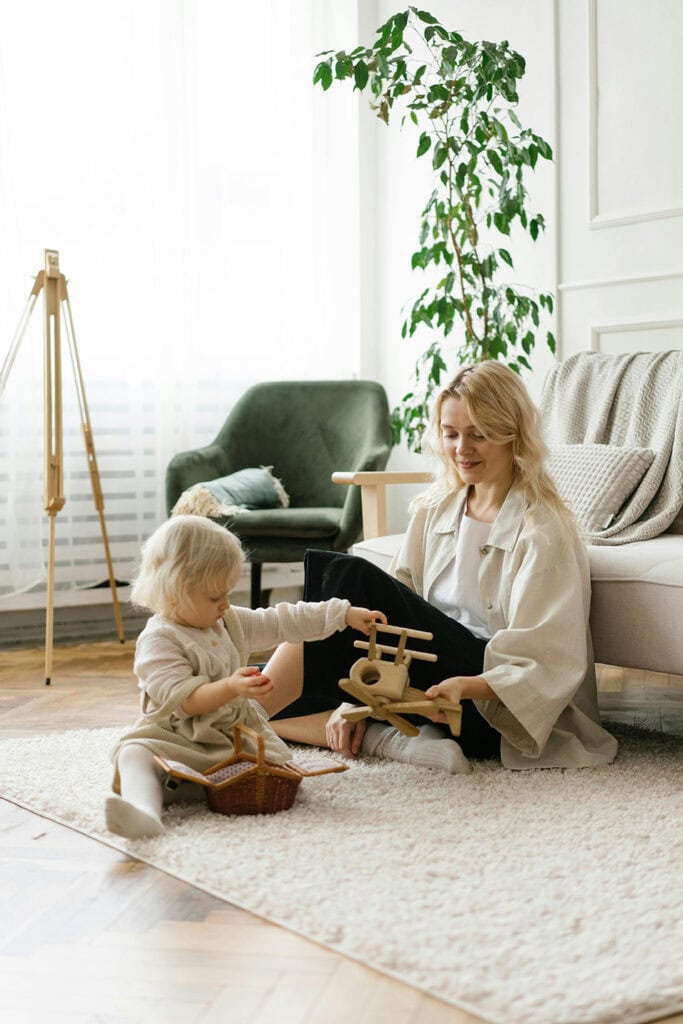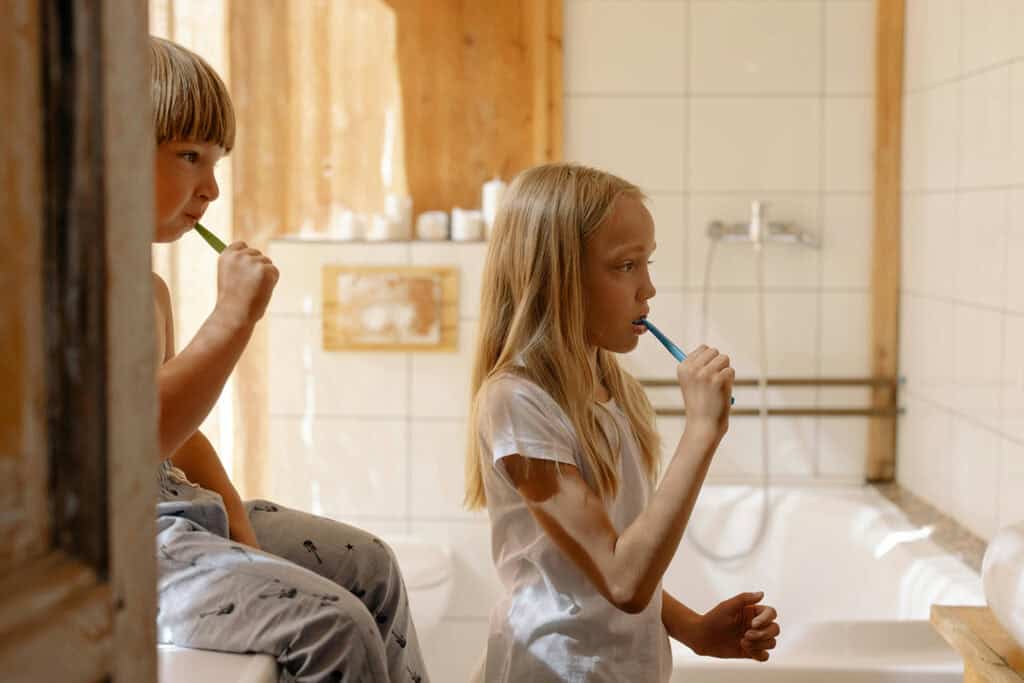
What makes a strong and happy family? A well-balanced family thrives on clear roles and shared responsibilities. Every member—parents, children, grandparents, siblings, and extended relatives—plays a part in maintaining a loving and supportive household.
In this article, we will explore 60 key responsibilities across 6 categories, covering parental guidance and support.
By understanding these roles, families can build stronger bonds, improve communication, and create a positive environment where everyone thrives.
Let’s start!
Understanding Family Roles and Responsibilities
Families work as a system where each person has a role. Family roles help maintain balance and teach responsibility. Parents guide the decision-making process and set household rules. Children learn through family responsibilities and household chores. These tasks help children grow into responsible adults.
Family meetings encourage open talk and strengthen bonds. Sharing family chores builds teamwork and respect. The importance of family bonding cannot be ignored. It creates love and trust. Household rules keep order and fairness.
Every family member must support each other. A strong family system helps everyone feel valued. When roles are clear, the family works better together. Learning responsibilities early makes life easier for all.
See also Stay at Home Mom Responsibilities: 8 Duties and Essential Tips
Roles and Responsibilities of Each Member
1. Father

The father is the head of the family in many households. He plays a key role in providing and protecting his family. Top responsibilities of a father responsibilities include:
1. Providing Financial Support: Fathers often take charge of the family’s financial well-being by earning money and managing expenses.
2. Ensuring Family Security: He makes sure the family has a safe and stable home.
3. Being a Role Model: Fathers set an example for their children by showing hard work, responsibility, and respect.
4. Guiding and Advising: Fathers offer wisdom and advice to their children as they grow.
5. Helping with Discipline: They set rules and enforce discipline to teach their children responsibility.
6. Spending Quality Time with Family: Fathers engage in activities with their children to build strong bonds.
7. Teaching Life Skills: They help children learn practical skills such as problem-solving, decision-making, and money management.
8. Encouraging Education and Career Growth: Fathers support their children’s education and future goals.
9. Taking Care of Home Repairs: Many fathers handle maintenance work at home.
10. Supporting the Mother: They work as a team with the mother to raise the family.
2. Mother

The mother is the heart of the family. She provides love, care, and emotional support. Her responsibilities include:
1. Raising and Nurturing Children: Mothers teach their children values, manners, and emotional intelligence.
2. Managing the Household: She organizes daily tasks and ensures the home runs smoothly.
3. Providing Emotional Support: Mothers offer comfort and understanding to family members.
4. Ensuring Children’s Health and Well-being: She takes care of their nutrition, doctor visits, and overall health.
5. Teaching Good Manners and Habits: Mothers shape their children’s behavior and attitude toward life.
6. Encouraging Education: They motivate children to study and achieve their goals.
7. Handling Family Traditions: Many mothers play a key role in maintaining cultural values and traditions.
8. Cooking and Meal Preparation: Mothers often prepare meals that keep the family healthy and happy.
9. Balancing Work and Family Life: Many mothers manage both work and household duties.
10. Supporting the Father: Mothers work alongside fathers to create a strong family unit.
3. Children

Children play an important role in the family. They learn from their parents and contribute to a positive home. Their responsibilities include:
1. Respecting Parents and Elders: Showing kindness and obedience builds a strong family unit.
2. Helping with Chores: Doing simple tasks teaches responsibility and teamwork.
3. Following Family Rules: Respecting boundaries keeps harmony in the home.
4. Focusing on Education: Studying and doing homework prepares children for the future.
5. Practicing Good Manners: Saying “please” and “thank you” fosters respect.
6. Being Honest: Truthfulness builds trust between family members.
7. Caring for Siblings: Helping younger siblings teaches compassion and leadership.
8. Making Healthy Choices: Eating nutritious food and staying active improve well-being.
9. Expressing Gratitude: Appreciating parents’ efforts strengthens family bonds.
10. Contributing to a Positive Atmosphere: A good attitude creates a happy home.
4. Grandparents

Grandparents provide wisdom and experience. They play a special role in the family. Their responsibilities include:
1. Providing Emotional Support: They offer love and guidance to family members.
2. Sharing Stories and Traditions: Passing down family history strengthens connections.
3. Helping with Childcare: Many grandparents assist in raising their grandchildren.
4. Offering Advice: Their life experiences provide valuable lessons.
5. Encouraging Family Unity: They bring family members together for gatherings.
6. Setting an Example: Their behavior influences younger generations.
7. Supporting Parents: Grandparents assist in raising children when needed.
8. Participating in Family Events: Being present at celebrations strengthens family ties.
9. Maintaining a Positive Attitude: A cheerful mindset inspires younger generations.
10. Teaching Skills and Hobbies: Sharing knowledge enriches family life.
5. Siblings

Siblings are built-in friends and support systems. They play an important role in each other’s lives. Their responsibilities include:
1. Supporting Each Other: Encouraging one another builds confidence.
2. Being Respectful: Treating each other with kindness reduces conflicts.
3. Helping with Chores: Sharing tasks makes life easier for everyone.
4. Leading by Example: Older siblings can teach younger ones good habits.
5. Keeping Family Secrets Private: Trust is important among siblings.
6. Resolving Conflicts Peacefully: Talking through problems strengthens relationships.
7. Spending Quality Time Together: Bonding activities create lifelong memories.
8. Encouraging Academic Success: Helping with homework improves learning.
9. Looking Out for Each Other: Protecting siblings ensures safety.
10. Being Honest: Truthfulness builds trust between siblings.
6. Extended Family

Extended family members include aunts, uncles, and cousins. They also contribute to a happy family life. Their responsibilities include:
1. Providing Additional Support: They offer help when needed.
2. Participating in Family Gatherings: Celebrating together strengthens bonds.
3. Offering Guidance: Aunts and uncles provide advice.
4. Helping in Emergencies: Extended family can step in during crises.
5. Being Role Models: Their behavior influences younger relatives.
6. Encouraging Family Unity: They help maintain strong connections.
7. Sharing Skills and Knowledge: Teaching younger members valuable lessons.
8. Keeping Family Traditions Alive: Passing down cultural practices.
9. Offering Financial Help: Some extended family members assist with expenses.
10. Providing Emotional Support: Being there for each other builds a strong family unit.
See also Family Home Entertainment Movies: 20 Must-Watch Films for Families
Why Family Roles Matter in a Household

Family roles shape how a household functions. Each person has responsibilities that keep the family strong. Parents guide, support, and set family rules. Children learn respect and teamwork. These roles create structure and stability.
Family bonding activities help strengthen relationships. They build trust and understanding. Clear family rules teach discipline and responsibility. When roles are balanced, challenges become easier to handle.
Personal growth happens within a supportive family. Each member contributes, learns, and grows. Strong family roles create a healthy, happy home. A well-structured household helps everyone thrive.
Families that work together stay connected and strong.
Roles and Responsibilities of Family Members: A Recap
A strong family system relies on clear roles and responsibilities. Every person plays a part in maintaining balance and harmony. Household rules help set expectations, while a chores list template keeps tasks organized. These small steps contribute to a peaceful home.
Teaching children about responsibilities builds their character. They learn from family values books and daily experiences. Setting family rules creates structure, while open communication helps trust.
The secrets of a happy family lie in teamwork, respect, and love. When each member contributes, wellness improves for everyone. Families that follow a clear system stay connected and strong. A well-balanced home leads to lifelong support and happiness.


